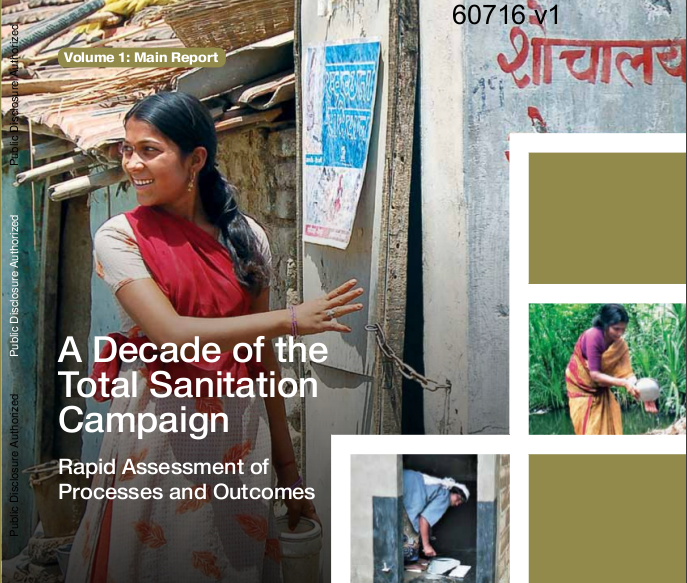/regions/india
India
Sustainable urban water supply in south India : Desalination, efficiency improvement, or rainwater harvesting?
Posted on 11 May, 2011 05:26 PMAbstract:
Recycling of water during distillation in laboratories and industries saves gallons of water - Blog post by Dr K K Sharma
Posted on 11 May, 2011 02:21 PMIn the process of distillation vapors passing through the condenser tube are cooled and condensed by water flowing through condenser tube in the condenser unit of the apparatus. In almost all laboratories the water used for cooling the condenser tube is coming from the water supply tap near the wash basin. The precious water after circulating through the condenser tube is left into the drain as wastewater. It has been observed that about 40 liters of water is required for cooling for making 500 ml of distilled water. The water after cooling is generally left to go into the drain.
The following video has been prepared by me and is released by youtube. The video gives good information for those who want to learn about the traditional method of glass distillation and the modified Recycling Distillation Technique (Sharma, 2004) that saves gallons of water.
Towards a Kisan Swaraj Policy based on people's control over agricultural resources
Posted on 11 May, 2011 07:10 AM This pan-Indian outreach effort involved dialogues with tens of thousands of citizens, demanding that the nation should devote urgent attention to the continuing agricultural crisis and allocate highest priority to the agriculture sector, ending decades of neglect.
This pan-Indian outreach effort involved dialogues with tens of thousands of citizens, demanding that the nation should devote urgent attention to the continuing agricultural crisis and allocate highest priority to the agriculture sector, ending decades of neglect.
Call for proposals "3rd round Western Ghats Small Grants" - Last date to apply 31st May 2011
Posted on 10 May, 2011 04:42 PM
The Critical Ecosystem Partnership Fund (CEPF) is a joint initiative of l’Agence Française de Développement, Conservation International, the Global Environment Facility, the Government of Japan, the John D. and Catherine T. MacArthur Foundation, and the World Bank. A fundamental goal is to ensure civil society is engaged in biodiversity conservation. CEPF provides strategic assistance to NGOs, community groups and other civil society partners to help safeguard biodiversity hotspots. This conservation investment is guided by region-specific investment strategies, developed with inputs and in consultation with diverse stakeholders. The Ecosystem Profile for the Western Ghats was developed by conservation and scientific institutions, with inputs from civil society, to guide the strategic and catalytic conservation investment in the Western Ghats.
UNICEF is looking for 'Communication for Development Specialist' - New Delhi
Posted on 10 May, 2011 01:17 PM
The United Nations Children’s Fund (UNICEF), the world’s leading organization working for the rights of children, invites applications for the following position.
Under the daily supervision of the WASH Specialist, and in consultation with the Communication for Development (C4D) section, the incumbent is responsible to provide strategic guidance, technical inputs and design and production oversight for UNICEF’s WASH communication interventions in child environment programme and for supporting the Ministry of Rural Development, Department of Drinking Water Supply’s relevant behavioural change programmes and initiatives.
NREGA and rural water management in India: Improving the welfare effects – An occasional paper by IRAP
Posted on 09 May, 2011 09:41 PMNREGA is being eulogized by many in the academic, development and policy arena as a “silver bullet” for eradicating rural poverty and unemployment, by way of generating demand for productive labour force in villages and private incentives for management of common property resources.
A decade of the Total Sanitation Campaign - Rapid assessment of processes and outcomes - A report by the Water and Sanitation Program (2011)
Posted on 30 Apr, 2011 05:23 PM The Water and Sanitation Program has analysed secondary data on the Total Sanitation Campaign (TSC) available on government websites and conducted primary analysis in 22 sample districts spread across 21 states.
The Water and Sanitation Program has analysed secondary data on the Total Sanitation Campaign (TSC) available on government websites and conducted primary analysis in 22 sample districts spread across 21 states.
With the use of secondary and primary data the report has not only been able to give a macro view of the TSC but also has been able to go into the nitty-gritty of the campaign. There are case studies of districts and villages that have achieved open defecation free status.
India Meteorological Department is looking for proposals on research in the field of meteorology and atmospheric sciences
Posted on 29 Apr, 2011 02:25 PMIndia Meteorological Department (IMD) conducts and promotes R & D in different disciplines of meteorology. Main objective of IMD’s R & D activities is to improve its services to various users.
India's forests and REDD+ - A factsheet prepared by Ministry of Environment and Forests
Posted on 28 Apr, 2011 04:29 PMThe benefits of working with REDD and the need and benefits of getting more ambitious by accepting REDD+, which is about finding financial value for carbon stored in standing forests which therefore incentivises the positive elements of conservation is also elaborated here.
AFPRO propagates Geospatial Technology (GT) solutions in Natural Resource Management (NRM)
Posted on 28 Apr, 2011 11:40 AM. It has been recognized as an ‘Organization of National Importance’ by the Government of India vides notification no.124/2004 F. No. 200/59/2003 – ITAI dated 26 March, 2004.
AFPRO propagates Geospatial Technology (GT) solutions for planning and implementing environmentally sound interventions related to development of land and water resources, food security and rural livelihoods. The experiences of AFPRO range from designing spatial database(s), adoption of GT in understanding changes in existing natural resources, impact assessment and role of community in better management of natural resources. Based on its varied experience in Natural Resource Management (NRM), watershed management, water & sanitation, protected area management and rural development has been identified as organisational thrust areas.